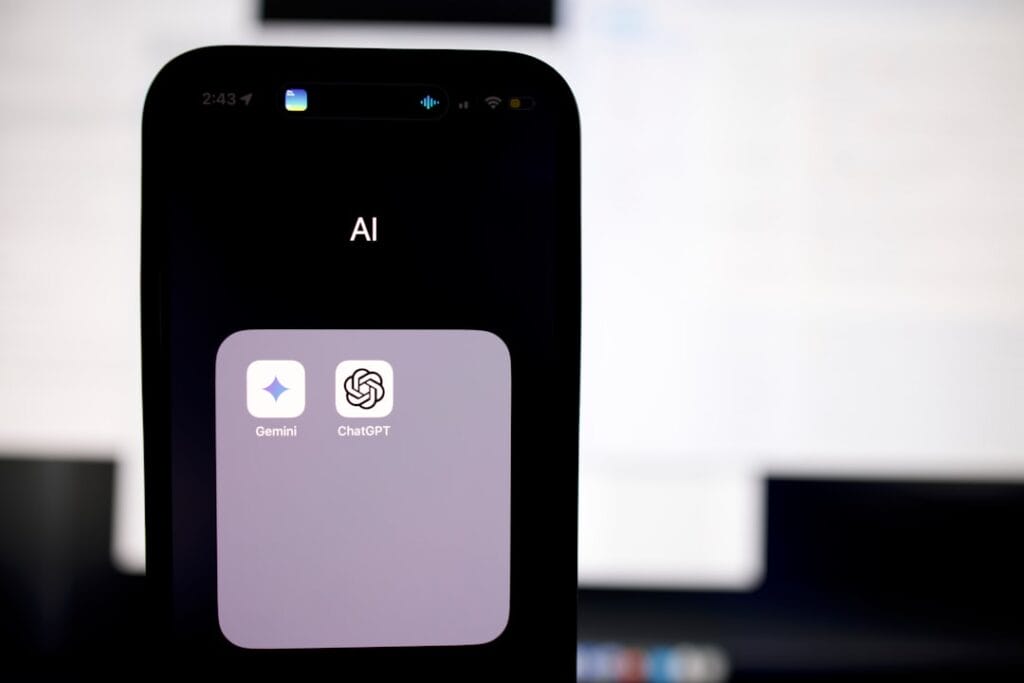Roku is a leading streaming platform that has revolutionized the way we consume entertainment. Founded in 2002, Roku started as a hardware company that developed streaming devices to connect televisions to the internet. Over the years, it has evolved into a comprehensive streaming platform that offers a wide range of features and services.
Roku’s streaming devices allow users to access popular streaming services like Netflix, Hulu, and Amazon Prime Video, as well as thousands of other channels and apps. The devices are easy to set up and use, making it accessible to people of all ages and technical abilities. In addition to its hardware, Roku also offers a free operating system called Roku OS, which is used by many smart TVs and other streaming devices.
Key Takeaways
- Roku is a leading streaming platform that has revolutionized the way we watch TV.
- Artificial Intelligence (AI) is playing an increasingly important role in improving user experience on Roku.
- AI-driven personalized recommendations are changing the way we discover and watch content on Roku.
- Predictive analytics and machine learning are the future of streaming on Roku, offering exciting possibilities for users and advertisers.
- AI is helping Roku combat piracy and copyright infringement, while also enhancing accessibility and inclusivity for all users.
Understanding Artificial Intelligence (AI) and Its Impact on Streaming
Artificial Intelligence (AI) refers to the simulation of human intelligence in machines that are programmed to think and learn like humans. It involves the use of algorithms and data to enable machines to perform tasks that would typically require human intelligence.
In the streaming industry, AI is changing the way we consume content. It is being used to analyze user data and preferences to provide personalized recommendations, improve content discovery, enhance advertising effectiveness, combat piracy, and even assist in content creation and curation.
The Role of AI in Improving User Experience on Roku
One of the key ways AI enhances the user experience on Roku is through personalization. By analyzing user data such as viewing history, preferences, and ratings, AI algorithms can provide personalized recommendations tailored to each individual user’s tastes. This means that users are more likely to discover new shows and movies that they will enjoy, leading to a more satisfying streaming experience.
For example, a user might have recently watched a few episodes of a crime drama series on Roku. Based on this viewing history, Roku’s AI algorithms can recommend similar shows in the crime genre, as well as other related content such as documentaries or podcasts. This personalized approach saves users time and effort by presenting them with content that aligns with their interests.
Personalized Recommendations: How AI is Changing the Way We Watch TV
| Metrics | Data |
|---|---|
| Number of households using personalized recommendations | Over 50 million |
| Percentage of Netflix users who watch recommended content | 80% |
| Number of personalized recommendations made by Netflix per day | Over 1 billion |
| Percentage increase in user engagement with personalized recommendations | Up to 60% |
| Number of AI algorithms used by streaming services for personalized recommendations | Multiple, including collaborative filtering, content-based filtering, and hybrid models |
One of the most significant ways AI is changing the way we watch TV is through personalized recommendations. Traditional TV viewing often involved flipping through channels or relying on word-of-mouth recommendations to discover new shows. However, with the advent of streaming platforms like Roku, AI has made content discovery much more efficient and tailored to individual preferences.
Imagine a user who is a fan of science fiction shows. They have just finished watching a popular sci-fi series on Roku and are looking for their next binge-worthy show. Thanks to AI, Roku’s recommendation engine can analyze the user’s viewing history and preferences to suggest similar sci-fi shows that they may enjoy. This not only saves the user time and effort in searching for new content but also introduces them to shows they may not have discovered otherwise.
The Future of Streaming: Predictive Analytics and Machine Learning on Roku
As AI continues to advance, the future of streaming on Roku looks even more promising. Predictive analytics and machine learning are two areas that hold great potential for improving the streaming experience.
Predictive analytics involves using historical data and statistical algorithms to make predictions about future events or behaviors. On Roku, this could mean predicting what shows or movies a user is likely to enjoy based on their past viewing habits. By analyzing patterns in user data, predictive analytics can help Roku deliver even more accurate and relevant recommendations.
Machine learning, on the other hand, involves training algorithms to learn from data and improve their performance over time. This can be particularly useful in content discovery, as machine learning algorithms can continuously analyze user feedback and adjust their recommendations accordingly. This means that as users interact with Roku’s platform, the AI algorithms will become more refined and accurate in predicting their preferences.
The Benefits of AI-Driven Advertising on Roku for Advertisers and Users

AI-driven advertising on Roku offers several benefits for both advertisers and users. By analyzing user data, AI algorithms can deliver targeted advertisements that are more likely to be relevant and engaging to the viewer. This improves the effectiveness of advertising campaigns and increases the chances of users engaging with the ads.
For example, imagine a user who frequently watches cooking shows on Roku. Based on this viewing behavior, AI algorithms can deliver targeted advertisements for kitchen appliances or cooking utensils. This not only benefits advertisers by reaching a highly relevant audience but also benefits users by presenting them with ads that align with their interests.
How AI is Helping Roku to Combat Piracy and Copyright Infringement
Piracy and copyright infringement are significant challenges in the streaming industry. However, AI is helping platforms like Roku combat these issues more effectively. By analyzing content metadata, user behavior, and other data points, AI algorithms can identify potential instances of piracy and copyright infringement.
For example, if a user uploads a video to Roku’s platform that contains copyrighted material, AI algorithms can quickly detect this and take appropriate action to remove the infringing content. This helps protect the rights of content creators and ensures that only legitimate content is available on Roku’s platform.
The Role of AI in Content Creation and Curation on Roku
AI is not only improving the way we consume content but also how it is created and curated. On Roku, AI algorithms can analyze user data to identify trends and patterns in viewing behavior. This information can then be used to inform content creators and curators about what types of content are popular or in demand.
For example, if a particular genre or theme is trending among Roku users, AI algorithms can alert content creators and curators to this trend. This allows them to create or curate content that is more likely to resonate with the audience, leading to a more engaging and satisfying streaming experience.
The Potential of AI in Enhancing Accessibility and Inclusivity on Roku
AI has the potential to enhance accessibility and inclusivity on Roku by providing features and tools that cater to users with different needs and abilities. For example, AI-powered voice assistants can make it easier for users with disabilities to navigate and control the Roku platform.
Additionally, AI algorithms can analyze user data to identify patterns in accessibility preferences. This information can then be used to improve the accessibility features on Roku, such as closed captioning or audio descriptions. By leveraging AI, Roku can ensure that its platform is accessible to a wide range of users, regardless of their abilities.
The Exciting Possibilities of Roku and AI for the Future of Streaming
In conclusion, Roku’s integration of AI into its streaming platform has revolutionized the way we consume entertainment. From personalized recommendations to improved content discovery, AI has enhanced the user experience on Roku in numerous ways.
Looking ahead, the future of streaming on Roku looks even more promising with the potential for predictive analytics and machine learning. These advancements will further refine the personalized recommendations and content discovery capabilities of the platform.
Furthermore, AI-driven advertising, piracy detection, content creation, and curation are all areas where AI will continue to play a significant role in improving the streaming experience on Roku.
Overall, the integration of AI into Roku’s platform has opened up exciting possibilities for the future of streaming. As technology continues to advance, we can expect even more innovative features and services that will enhance our entertainment experience.
If you’re interested in the intersection of Roku and AI, you might want to check out this fascinating article on how streaming music platforms are leveraging artificial intelligence to tackle the complex issue of royalties. The article explores how AI algorithms are being used to accurately track and distribute royalties to artists, ensuring fair compensation in the digital age. To learn more about this innovative approach, click here.
FAQs
What is Roku?
Roku is a streaming device that allows users to access various streaming services such as Netflix, Hulu, and Amazon Prime Video on their TV.
What is AI?
AI stands for Artificial Intelligence. It is a branch of computer science that deals with the development of intelligent machines that can perform tasks that typically require human intelligence, such as visual perception, speech recognition, decision-making, and language translation.
How is AI used in Roku?
AI is used in Roku to provide personalized recommendations to users based on their viewing history and preferences. It also helps to improve the search functionality by understanding natural language queries and providing relevant results.
What are the benefits of using AI in Roku?
The benefits of using AI in Roku include improved user experience, personalized recommendations, and more accurate search results. It also helps to save time by reducing the need for manual searching and browsing.
Is AI in Roku safe?
Yes, AI in Roku is safe. The technology is designed to enhance the user experience and does not pose any security risks. However, users should always be cautious when sharing personal information and ensure that their privacy settings are properly configured.
Can AI in Roku be turned off?
No, AI in Roku cannot be turned off completely. However, users can adjust their privacy settings to limit the amount of data that is collected and used for personalized recommendations.



